Why Russia’s Presidential elections don’t matter, and why they still do
Do these elections still matter? What’s the best plan of action for the Russian prodemocracy forces for these elections?
By Vladimir Milov February 06, 2024
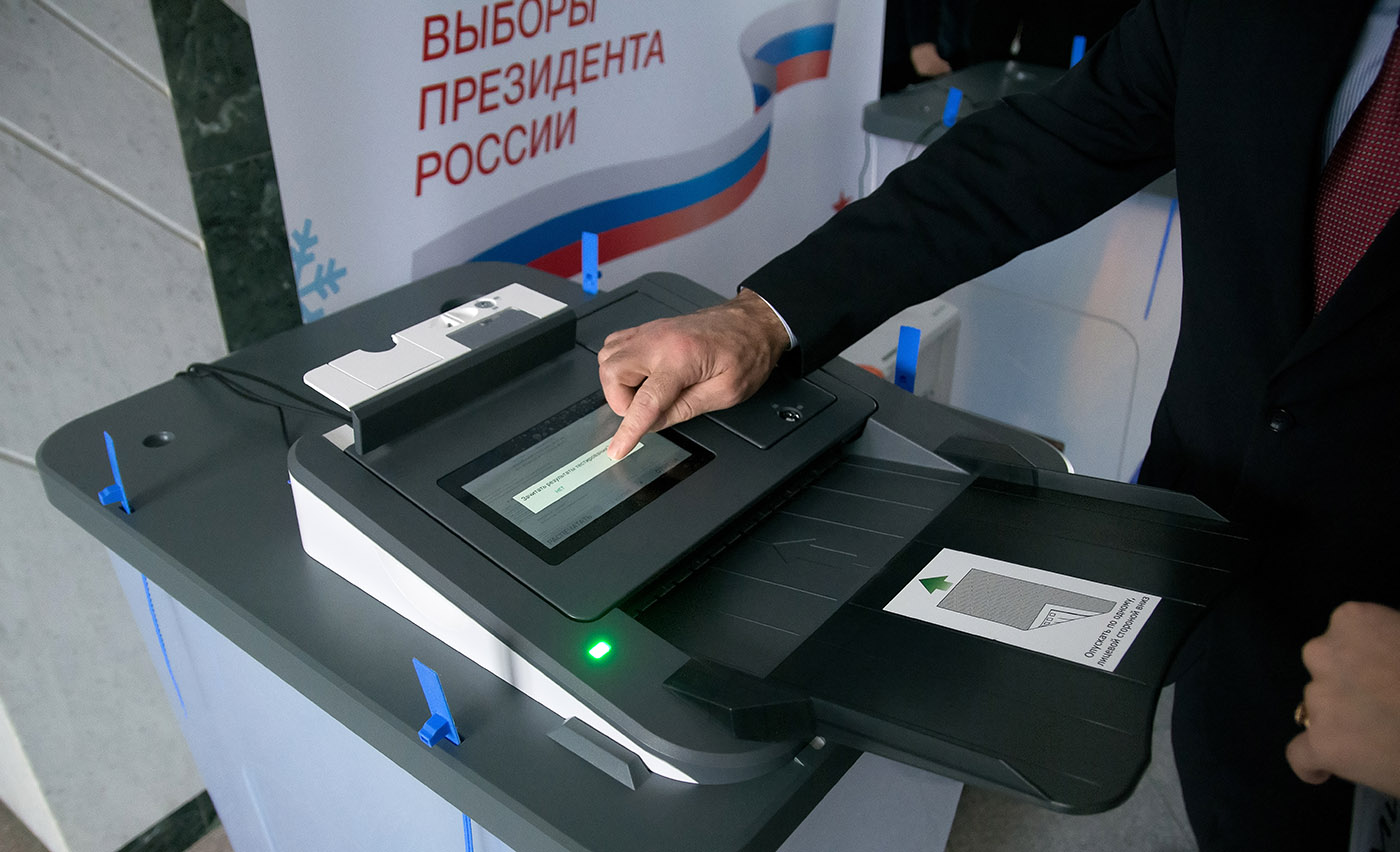
Do these elections still matter? What’s the best plan of action for the Russian prodemocracy forces for these elections?
By Vladimir Milov February 06, 2024

Russian presidential elections scheduled for March 15–17 can be more accurately described as a reappointment procedure. Yet, despite the predictable and certain outcome, they remain a focus of intense debate in the Western media and analytical circles.
Do these elections still matter? What’s the best plan of action for the Russian prodemocracy forces for these elections?
In recent years, Putin’s regime has completely overhauled the Russian electoral process, effectively eliminating all mechanisms to influence the election outcome.
First, following the last nationwide election (State Duma elections of 2021), the election observation rules have been changed so significantly, that independent election monitoring is no longer possible in Russia, for the first time since 1985.
Russian presidential elections scheduled for March 15–17 can be more accurately described as a reappointment procedure. Yet, despite the predictable and certain outcome, they remain a focus of intense debate in the Western media and analytical circles.
Do these elections still matter? What’s the best plan of action for the Russian prodemocracy forces for these elections?
In recent years, Putin’s regime has completely overhauled the Russian electoral process, effectively eliminating all mechanisms to influence the election outcome.
First, following the last nationwide election (State Duma elections of 2021), the election observation rules have been changed so significantly, that independent election monitoring is no longer possible in Russia, for the first time since 1985.
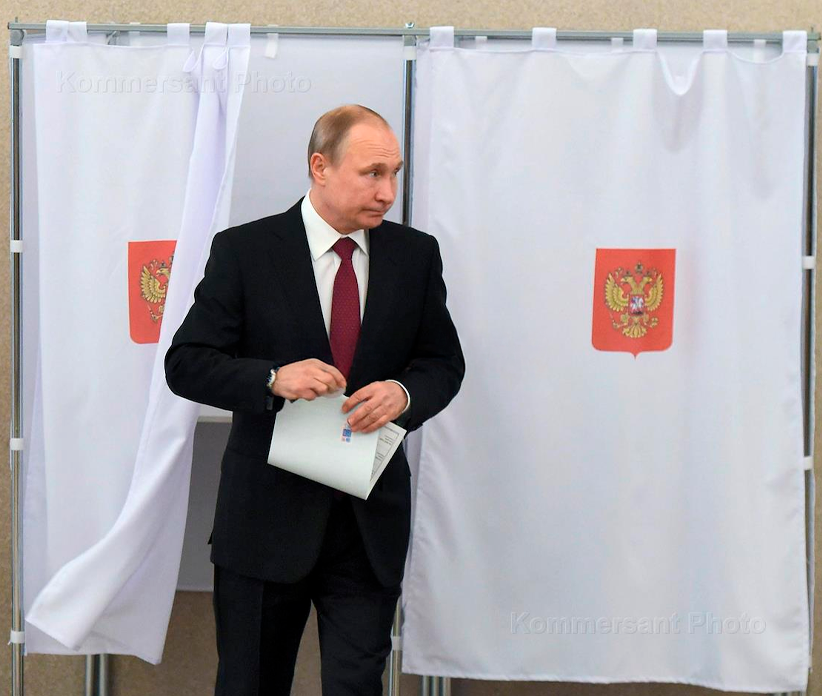

The institution of members of local electoral commissions with advisory voting rights has been abolished at the precinct level, although it still functions at the federal and regional levels. It used to be the primary avenue for pro‑democracy forces to introduce their observers to polling stations.
Now, only permanent voting members of local electoral commissions remain, appointed for 5‑year terms under strict government supervision. Most of them are loyal to the authorities. This change has severely restricted the recruitment and assignment of independent election observers, which was primarily done through the advisory commission member mechanism.
Election candidates can no longer appoint their own members of local precinct election commissions with advisory rights and must rely on permanent commission members who mainly represent the ruling power vertical.
Also gone is the option to send candidates' proxies to polling stations, as the recent changes to the law have stripped proxies of their powers on voting days.
The institution of members of local electoral commissions with advisory voting rights has been abolished at the precinct level, although it still functions at the federal and regional levels. It used to be the primary avenue for pro‑democracy forces to introduce their observers to polling stations.
Now, only permanent voting members of local electoral commissions remain, appointed for 5‑year terms under strict government supervision. Most of them are loyal to the authorities. This change has severely restricted the recruitment and assignment of independent election observers, which was primarily done through the advisory commission member mechanism.
Election candidates can no longer appoint their own members of local precinct election commissions with advisory rights and must rely on permanent commission members who mainly represent the ruling power vertical.
Also gone is the option to send candidates' proxies to polling stations, as the recent changes to the law have stripped proxies of their powers on voting days.
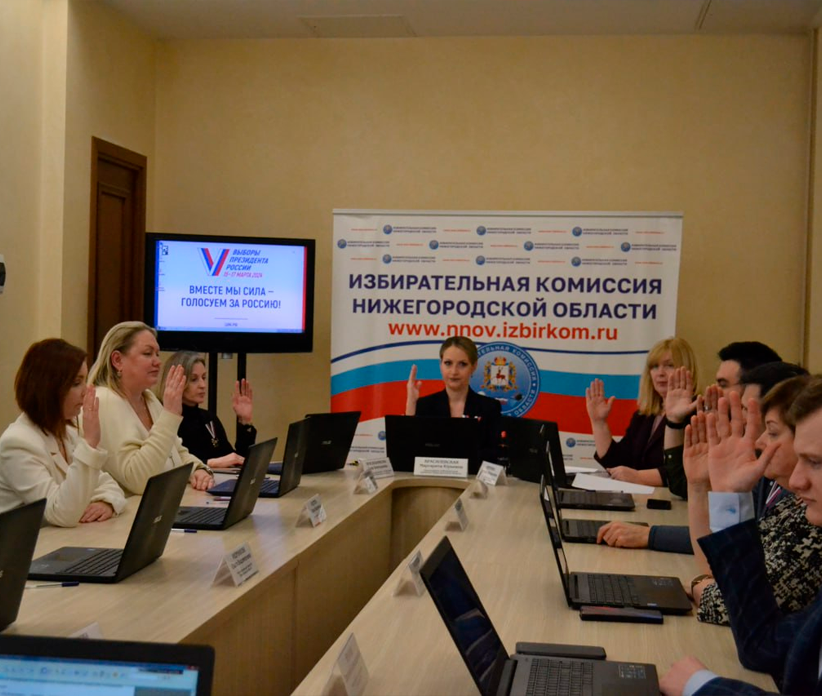

Precise spots at polling stations where observers are allowed have been severely limited, as has the observers’ movement on the voting premises, effectively preventing observers from monitoring potential manipulations with ballots and protocols from close range.
Russia has taken cues from the Belarusian dictator Lukashenka who has banned observers from entering the premises to monitor the voting process and vote count. In the case of Belarus, this change has led to absurd situations where people are forced to observe the voting through windows with binoculars.
To be admitted as an observer, an individual has to be a voter in that region. The planned observation precinct now must be reported to the election commission three days before voting, without the possibility of changing the site. This greatly reduces the flexibility of distributing independent observers between polling sites, particularly in the regions.
For example, it is no longer possible to send volunteers from large cities to observe elections at provincial sites.
Precise spots at polling stations where observers are allowed have been severely limited, as has the observers’ movement on the voting premises, effectively preventing observers from monitoring potential manipulations with ballots and protocols from close range.
Russia has taken cues from the Belarusian dictator Lukashenka who has banned observers from entering the premises to monitor the voting process and vote count. In the case of Belarus, this change has led to absurd situations where people are forced to observe the voting through windows with binoculars.
To be admitted as an observer, an individual has to be a voter in that region. The planned observation precinct now must be reported to the election commission three days before voting, without the possibility of changing the site. This greatly reduces the flexibility of distributing independent observers between polling sites, particularly in the regions.
For example, it is no longer possible to send volunteers from large cities to observe elections at provincial sites.
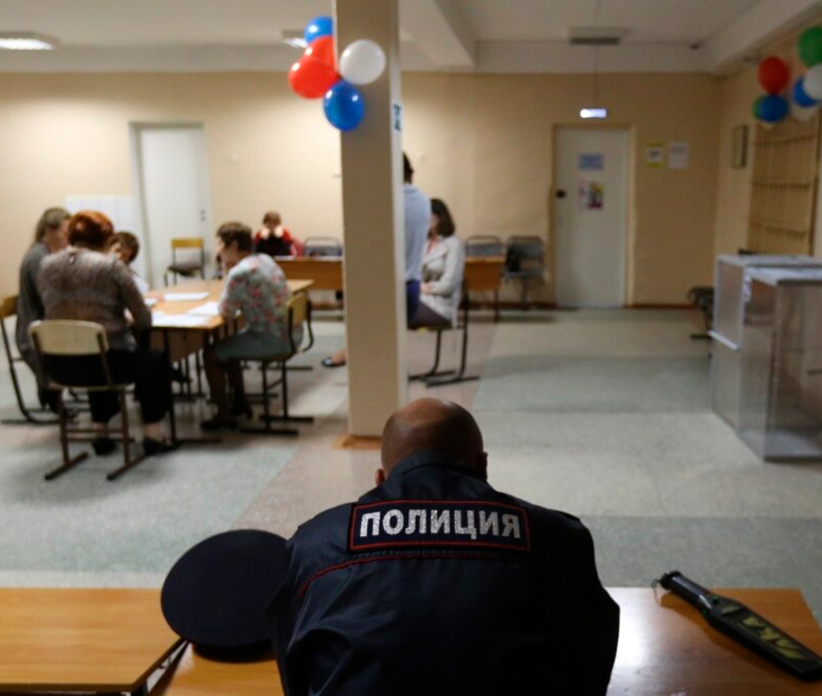

Grigory Melkonyants, a co‑chair of the independent electoral monitoring association Golos estimates the maximum input from independent observers into the election proves at under 20% from the level of 2016, when rules were already very stringent, significantly restricting the activity of independent observers.
Secondly, the presidential elections of 2024 will be the first Russian nationwide elections with a widespread use of electronic voting in three dozen regions. This is certain to make the process extremely opaque. It is unclear how electronic voting algorithms work, the process is not verifiable and not subject to outside control.
During the 2021 State Duma elections, most of the Moscow districts were won by opposition candidates after ballots were counted at the polling stations. However, when electronically submitted votes were added overnight, the results flipped in favor of the ruling party candidates.
Grigory Melkonyants, a co‑chair of the independent electoral monitoring association Golos estimates the maximum input from independent observers into the election proves at under 20% from the level of 2016, when rules were already very stringent, significantly restricting the activity of independent observers.
Secondly, the presidential elections of 2024 will be the first Russian nationwide elections with a widespread use of electronic voting in three dozen regions. This is certain to make the process extremely opaque. It is unclear how electronic voting algorithms work, the process is not verifiable and not subject to outside control.
During the 2021 State Duma elections, most of the Moscow districts were won by opposition candidates after ballots were counted at the polling stations. However, when electronically submitted votes were added overnight, the results flipped in favor of the ruling party candidates.
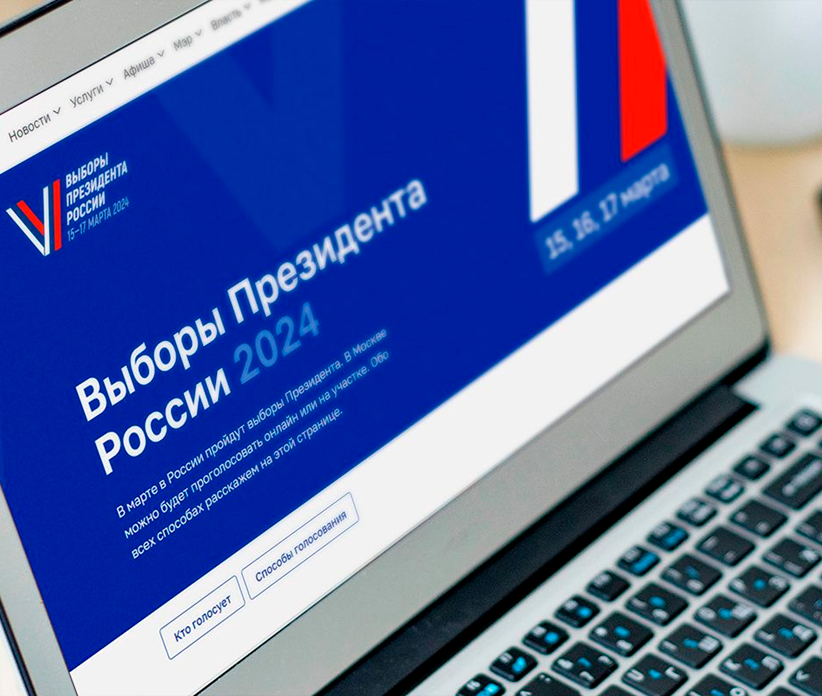

This was an extraordinary development, especially because the more digitally- savvy younger voter segments have stronger anti‑incumbent sentiment than seniors visiting the polling stations.
During the September 2023 Moscow Mayoral elections, voters were persistently advised to use electronic voting terminals installed at polling stations instead of using traditional paper ballots.
As a result, 82% of the votes in Moscow in September 2023 were cast electronically.
In March, according to the Russian Central Elections Commission, 38 million Russians will be able to vote electronically, including at polling stations.
Electronic voting is impossible to monitor by independent observes, basically allowing the Kremlin to draw any fantasy figure whatsoever as a result.
This was an extraordinary development, especially because the more digitally- savvy younger voter segments have stronger anti‑incumbent sentiment than seniors visiting the polling stations.
During the September 2023 Moscow Mayoral elections, voters were persistently advised to use electronic voting terminals installed at polling stations instead of using traditional paper ballots.
As a result, 82% of the votes in Moscow in September 2023 were cast electronically.
In March, according to the Russian Central Elections Commission, 38 million Russians will be able to vote electronically, including at polling stations.
Electronic voting is impossible to monitor by independent observes, basically allowing the Kremlin to draw any fantasy figure whatsoever as a result.
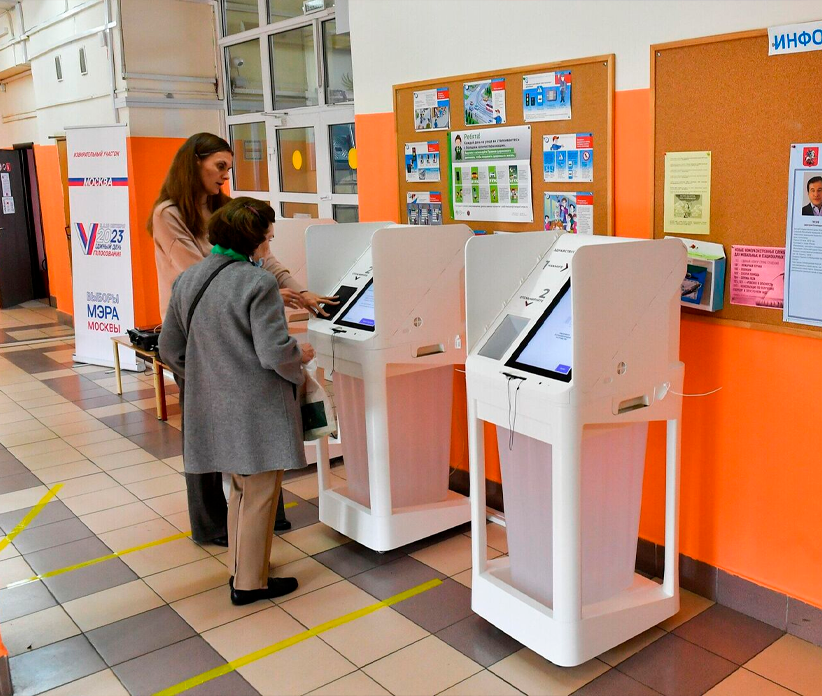

Furthermore, the Kremlin has also announced that it will not publish the breakdown of electronic voting results by precinct commissions will not be published significantly complicating detection of anomalies through mathematical analysis.
Another important feature of the upcoming elections is a severely restricted civil society space. No large‑scale on‑the-ground anti‑Putin campaign in Russia is possible.
Opposition activities have been de‑facto criminalized in 2021, with the onset of prosecution of Alexey Navalny’s supporters as extremists. Draconian prison sentences for Lilia Chanysheva, Ksenia Fadeeva and other associates of Navalny contain phrases such as “engagement in criminally punishable extremist activity through criticizing the policies of the government”.
Furthermore, the Kremlin has also announced that it will not publish the breakdown of electronic voting results by precinct commissions will not be published significantly complicating detection of anomalies through mathematical analysis.
Another important feature of the upcoming elections is a severely restricted civil society space. No large‑scale on‑the-ground anti‑Putin campaign in Russia is possible.
Opposition activities have been de‑facto criminalized in 2021, with the onset of prosecution of Alexey Navalny’s supporters as extremists. Draconian prison sentences for Lilia Chanysheva, Ksenia Fadeeva and other associates of Navalny contain phrases such as “engagement in criminally punishable extremist activity through criticizing the policies of the government”.
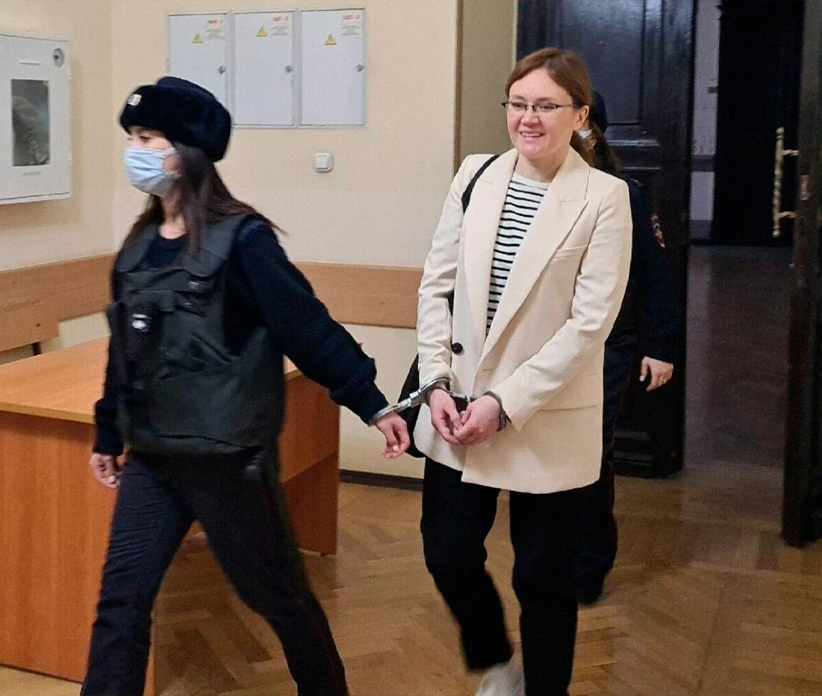

This prosecution deters many would‑be campaigners. Although some activists may still campaign against Putin, their number will be limited. Yet, to carry out an impactful anti‑Putin campaign, one needs no fewer than tens of thousands of activists mobilizing millions of voters.
For context, during the presidential elections of 2018, the officially reported voter turnout was over 73 million, of which Putin claimed to have received over 56 million votes. With a real risk of prison sentence for “extremism,” it will be impossible to find enough campaigners to reach out to comparable number of voters.
Therefore, the March 2024 Presidential elections in Russia remain elections in name only. It is the first time since mid‑80s that the election outcome in my country will be fully determined by the authorities, without any possibility to influence the results that will be manipulated by definition.
In previous years, elections were tough and fraudulent, too, but there was still some room to maneuver for the opposition. But not anymore.
This prosecution deters many would‑be campaigners. Although some activists may still campaign against Putin, their number will be limited. Yet, to carry out an impactful anti‑Putin campaign, one needs no fewer than tens of thousands of activists mobilizing millions of voters.
For context, during the presidential elections of 2018, the officially reported voter turnout was over 73 million, of which Putin claimed to have received over 56 million votes. With a real risk of prison sentence for “extremism,“ it will be impossible to find enough campaigners to reach out to comparable number of voters.
Therefore, the March 2024 Presidential elections in Russia remain elections in name only. It is the first time since mid‑80s that the election outcome in my country will be fully determined by the authorities, without any possibility to influence the results that will be manipulated by definition.
In previous years, elections were tough and fraudulent, too, but there was still some room to maneuver for the opposition. But not anymore.
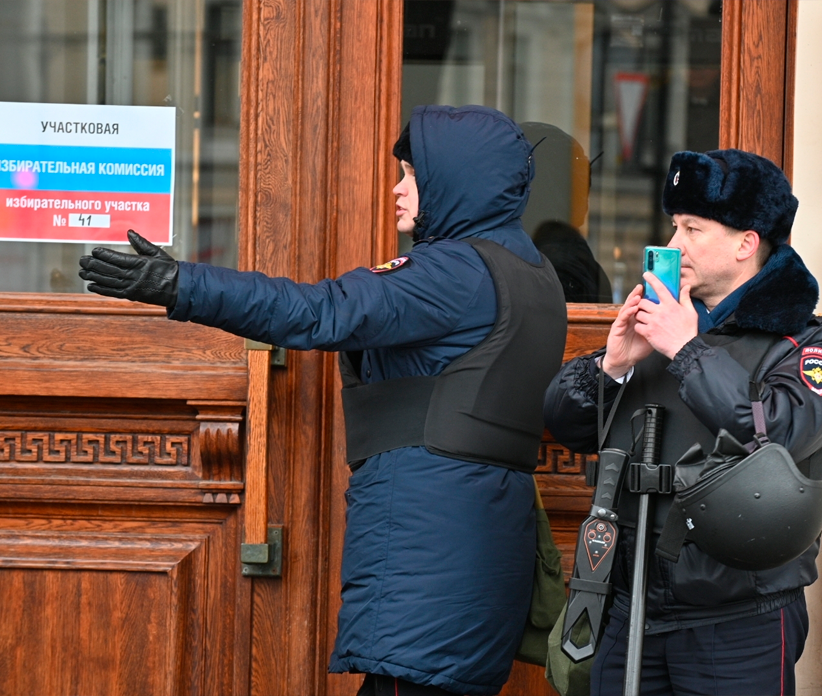

The Kremlin does not even attempt to hide its intent to control the election outcome. It has opened a criminal case against Golos, the leading independent election monitoring association, and sent its leader Grigory Melkonyants to jail.
Independent journalist and local political activist from the Tver region Yekaterina Duntsova, who campaigned on the anti‑war platform, was not even allowed to register her initiative group for nominating her as a candidate‑which is a requirement for launching a campaign.
Russian veteran democratic political party Yabloko refrained from even nominating a candidate, succumbing to pressure from the Kremlin.
A left‑wing activist Sergey Udaltsov, who criticized the Communist Party for putting forward a weak and toothless candidate instead of an ultra‑weight heavyweight, was arrested in January on charges of “justifying terrorism”.
A far‑right mercenary Igor Strelkov‑Girkin, who criticized Putin for his inability to win the war in Ukraine and expressed desire to run for President himself, has been recently sentenced to 4 years in prison.
The Kremlin does not even attempt to hide its intent to control the election outcome. It has opened a criminal case against Golos, the leading independent election monitoring association, and sent its leader Grigory Melkonyants to jail.
Independent journalist and local political activist from the Tver region Yekaterina Duntsova, who campaigned on the anti‑war platform, was not even allowed to register her initiative group for nominating her as a candidate‑which is a requirement for launching a campaign.
Russian veteran democratic political party Yabloko refrained from even nominating a candidate, succumbing to pressure from the Kremlin.
A left‑wing activist Sergey Udaltsov, who criticized the Communist Party for putting forward a weak and toothless candidate instead of an ultra‑weight heavyweight, was arrested in January on charges of “justifying terrorism”.
A far‑right mercenary Igor Strelkov‑Girkin, who criticized Putin for his inability to win the war in Ukraine and expressed desire to run for President himself, has been recently sentenced to 4 years in prison.
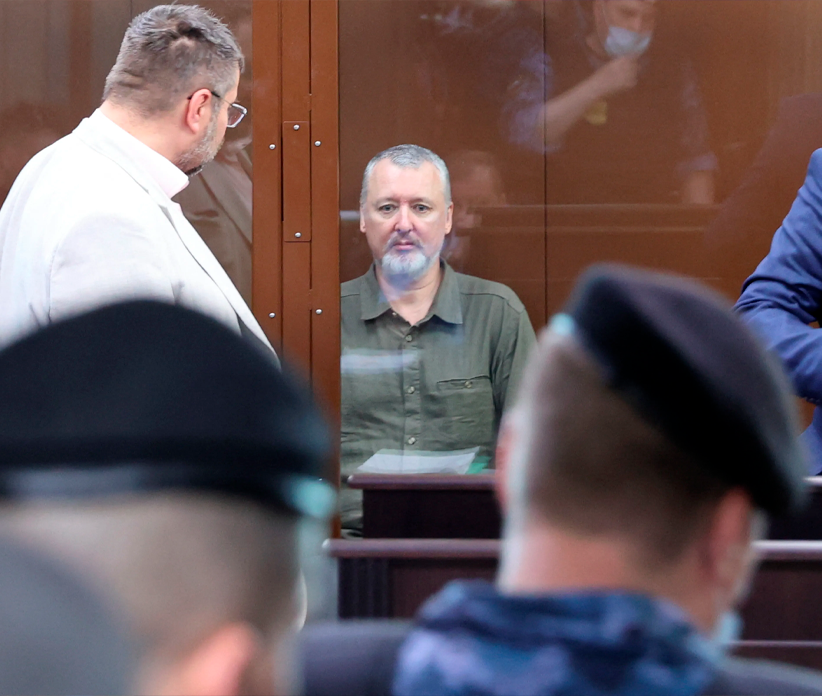

The electoral field has been thoroughly cleaned, neutralizing even those who did not intend to participate themselves, but were merely criticizing the orchestrated nature of the campaign.
So is the “electoral campaign” totally useless? Not really. Accepting the totally manipulative nature of these elections and detaching from their potential outcome in terms of numbers, gives rise to a new perspective.
Despite having fixed the process, Putin will still have to conduct a nominal campaign and reach out to the Russian society. This will expose his complete detachment from reality and further erode his ratings.
Anti‑Putin sentiments have been growing lately, and his bizarre statements and behavior may accelerate that trend.
The electoral field has been thoroughly cleaned, neutralizing even those who did not intend to participate themselves, but were merely criticizing the orchestrated nature of the campaign.
So is the “electoral campaign” totally useless? Not really. Accepting the totally manipulative nature of these elections and detaching from their potential outcome in terms of numbers, gives rise to a new perspective.
Despite having fixed the process, Putin will still have to conduct a nominal campaign and reach out to the Russian society. This will expose his complete detachment from reality and further erode his ratings.
Anti‑Putin sentiments have been growing lately, and his bizarre statements and behavior may accelerate that trend.
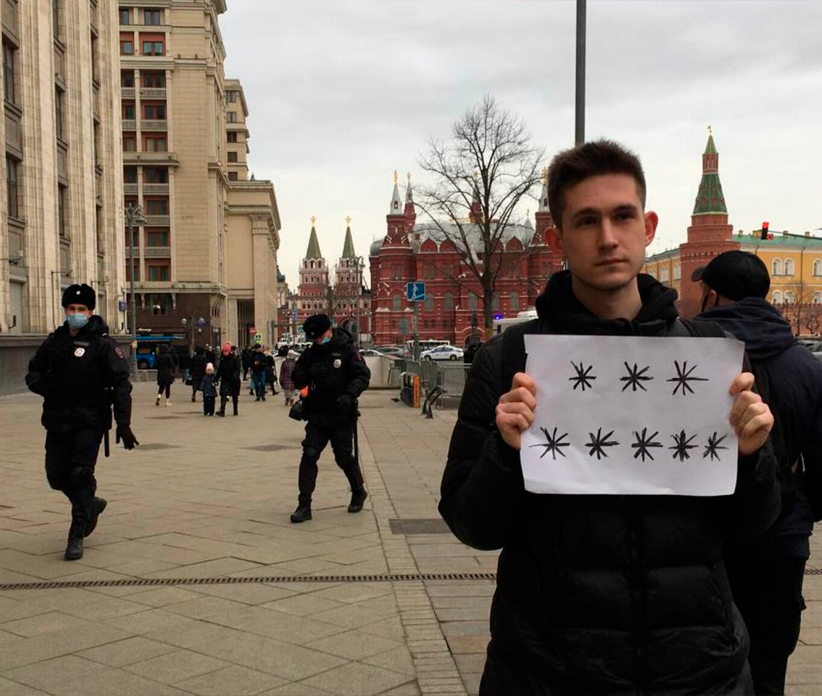

Putin’s December “direct line” with the Russians was marred by discrepancies between Putin’s own focus on geopolitics and society’s desire to refocus the country’s leadership on solving the country’s real problems, best reflected in one of the questions shown on screen during the broadcast‑“Why does your reality differ from our daily life?”.
While Putin went on extensive rants about Ukraine and the West, the audience constantly brought him back to much more pressing issues, such as growing prices for basic goods, and the publics’ desire to end the war. One of the hosts literally said that a “flurry” of questions was received about the war, with the key one being “when will the peace finally come?” Putin refused to give a straight answer.
The issue of skyrocketing prices had clouded Putin’s appearances during his first campaign trips to Chukotka and Khabarovsk, despite an effort by authorities to censor the conversations.
Putin’s December “direct line” with the Russians was marred by discrepancies between Putin’s own focus on geopolitics and society’s desire to refocus the country’s leadership on solving the country’s real problems, best reflected in one of the questions shown on screen during the broadcast‑“Why does your reality differ from our daily life?”.
While Putin went on extensive rants about Ukraine and the West, the audience constantly brought him back to much more pressing issues, such as growing prices for basic goods, and the publics’ desire to end the war. One of the hosts literally said that a “flurry” of questions was received about the war, with the key one being “when will the peace finally come?” Putin refused to give a straight answer.
The issue of skyrocketing prices had clouded Putin’s appearances during his first campaign trips to Chukotka and Khabarovsk, despite an effort by authorities to censor the conversations.
Russian prodemocracy forces in exile see the upcoming election as an opportunity to reinforce the broadcasting for their multi‑million Russian audiences with key message: Putin has no idea about the everyday life of ordinary Russians, he is a deficient leader, he should go, and Russia should withdraw from Ukraine.
Russian prodemocracy forces in exile see the upcoming election as an opportunity to reinforce the broadcasting for their multi‑million Russian audiences with key message: Putin has no idea about the everyday life of ordinary Russians, he is a deficient leader, he should go, and Russia should withdraw from Ukraine.
Internet and social media broadcasting opportunities remain strong — even pro‑Kremlin pollsters like WCIOM admit that state television is eventually(?) losing the competition with web information sources. These efforts to engage Russian people should be intensified.
The elections are also an opportunity to gauge the scale of the anti‑war sentiment among the Russian public, even in an environment where anti‑war views are criminalized.
Long queues of Russians lining up to put their signatures in support of Boris Nadezhdin, the only candidate who takes an open position to end the war in Ukraine, are in a stark contrast with empty kiosks asking for signatures in Putin’s support.
Internet and social media broadcasting opportunities remain strong — even pro‑Kremlin pollsters like WCIOM admit that state television is eventually(?) losing the competition with web information sources. These efforts to engage Russian people should be intensified.
The elections are also an opportunity to gauge the scale of the anti‑war sentiment among the Russian public, even in an environment where anti‑war views are criminalized.
Long queues of Russians lining up to put their signatures in support of Boris Nadezhdin, the only candidate who takes an open position to end the war in Ukraine, are in a stark contrast with empty kiosks asking for signatures in Putin’s support.
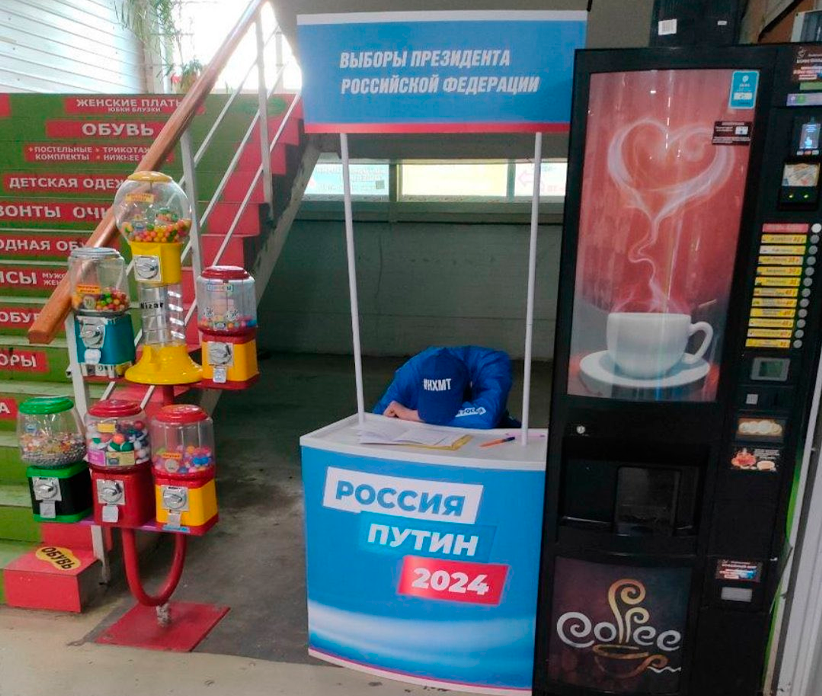

Lines in support of Nadezhdin have been so far the only visible event in this electoral campaign. That’s reassuring for anti‑Putin and anti‑war Russians, and confirms the anti‑war trends in Russian society reported earlier by pollsters.
One should not put too much focus on Nadezhdin’s candidacy. Despite public criticism of Putin, he is very loyal to the Russian authorities. Nadezhdin is closely associated with the Kremlin’s domestic policy chief Sergey Kirienko, having worked as his aide in the Cabinet of Ministers.
Nevertheless, no matter what happens to his candidacy, Nadezhdin may help consolidate anti‑war voters, the process which has already began to some extent.
As we saw during the Soviet war in Afghanistan in the 1980s, over time, public pressure influences the decisions of policymakers even in totalitarian states. Negative public opinion is one of the key reasons why Putin still hasn’t called a second wave of military mobilization, despite badly needing it to replace exhausted troops.
Therefore, creating and strengthening mechanisms of consolidation of Russians with anti‑war positions is critical.
Lines in support of Nadezhdin have been so far the only visible event in this electoral campaign. That’s reassuring for anti‑Putin and anti‑war Russians, and confirms the anti‑war trends in Russian society reported earlier by pollsters.
One should not put too much focus on Nadezhdin’s candidacy. Despite public criticism of Putin, he is very loyal to the Russian authorities. Nadezhdin is closely associated with the Kremlin’s domestic policy chief Sergey Kirienko, having worked as his aide in the Cabinet of Ministers.
Nevertheless, no matter what happens to his candidacy, Nadezhdin may help consolidate anti‑war voters, the process which has already began to some extent.
As we saw during the Soviet war in Afghanistan in the 1980s, over time, public pressure influences the decisions of policymakers even in totalitarian states. Negative public opinion is one of the key reasons why Putin still hasn’t called a second wave of military mobilization, despite badly needing it to replace exhausted troops.
Therefore, creating and strengthening mechanisms of consolidation of Russians with anti‑war positions is critical.
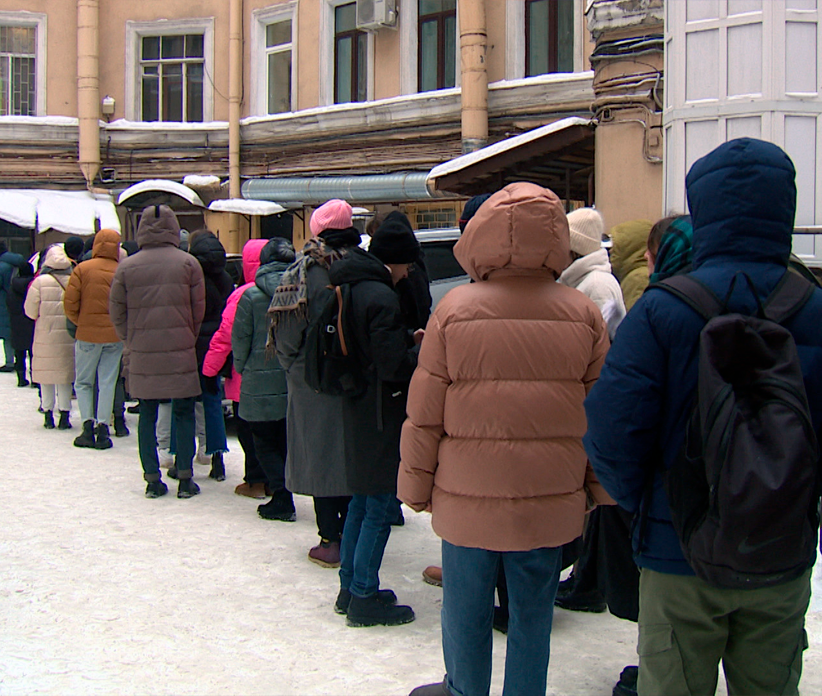

Elections bring forth the issue of public perception of Putin’s legitimacy. Although this is arguably the most difficult issue to assess due to public reluctance to answer straightforward questions about Putin, there are some hints in Russian public opinion suggesting that people don’t like that he has occupied the presidential post for so long, and they don’t trust the electoral process as much as authorities would like.
For instance, a 2023 poll by Russian Field found that 68% of Russians indicated that they are unhappy to see a person over the age of 70 as the country’s President; about a third of Russians say that it is unacceptable for one person to occupy the presidential chair for more than two terms, while only 37% state that it is fully acceptable.
In the September study by Russian Field, 43% of Russians say that they would choose an alternative candidate over Putin should a decent person reflecting their views emerge as candidate for President — with only the same 43% sticking to voting for Putin.
Elections bring forth the issue of public perception of Putin’s legitimacy. Although this is arguably the most difficult issue to assess due to public reluctance to answer straightforward questions about Putin, there are some hints in Russian public opinion suggesting that people don’t like that he has occupied the presidential post for so long, and they don’t trust the electoral process as much as authorities would like.
For instance, a 2023 poll by Russian Field found that 68% of Russians indicated that they are unhappy to see a person over the age of 70 as the country’s President; about a third of Russians say that it is unacceptable for one person to occupy the presidential chair for more than two terms, while only 37% state that it is fully acceptable.
In the September study by Russian Field, 43% of Russians say that they would choose an alternative candidate over Putin should a decent person reflecting their views emerge as candidate for President — with only the same 43% sticking to voting for Putin.
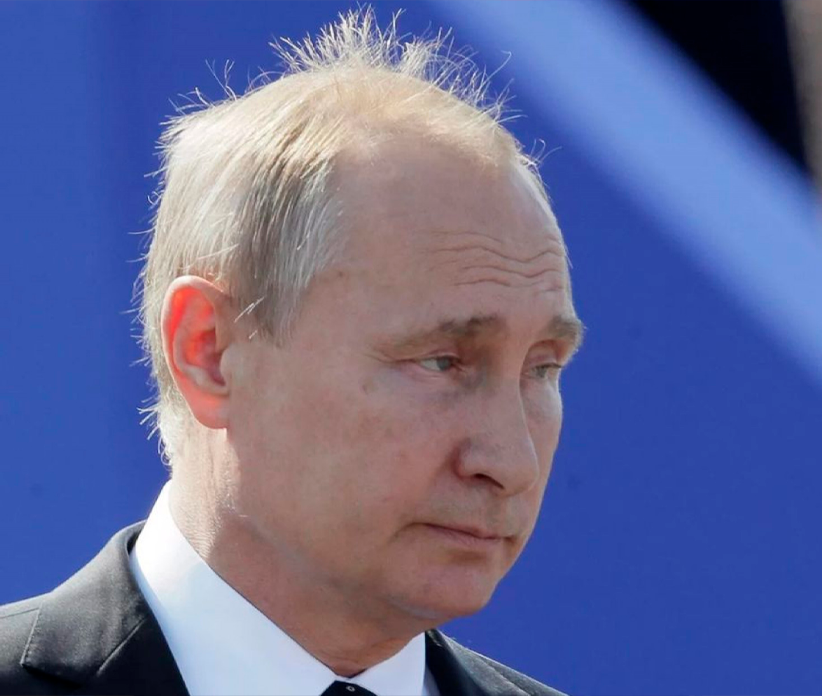

Therefore, the international position on Putin’s illegitimacy as a Russian leader may strongly resonate with the Russian society.
There are many reasons why Putin’s new presidential term will not be legitimate.
Votes for Putin will include those from the illegally annexed Ukrainian territories.
The very opportunity for him to run for a new term was allowed by a sham plebiscite on Constitutional amendments which was condemned internationally.
The whole Russian electoral process is a perverse imitation of democratic procedures, having nothing in common with a real competitive election.
Putin’s key political opponents are being murdered, poisoned, jailed, forced into exile, and legitimate opposition activity is effectively criminalized.
Therefore, the international position on Putin’s illegitimacy as a Russian leader may strongly resonate with the Russian society.
There are many reasons why Putin’s new presidential term will not be legitimate.
Votes for Putin will include those from the illegally annexed Ukrainian territories.
The very opportunity for him to run for a new term was allowed by a sham plebiscite on Constitutional amendments which was condemned internationally.
The whole Russian electoral process is a perverse imitation of democratic procedures, having nothing in common with a real competitive election.
Putin’s key political opponents are being murdered, poisoned, jailed, forced into exile, and legitimate opposition activity is effectively criminalized.


A clear non‑recognition of Putin as a legitimate Russian leader will underscore the futility of hopes for normalization of relations with the outside world while Putin is still in power — adding one more important factor to a slew of reasons why he has to go, apart from age, detachment from reality, and an unwillingness to end the war.
This is important to Russians who would like to be reintegrated into the global community. In 2023, Russian propaganda went to great lengths to hide from the Russian public the humiliation caused by Putin’s inability to visit South Africa due to the arrest warrant issued by the International Criminal Court. Further international isolation goes against the aspirations of most Russians.
A clear non‑recognition of Putin as a legitimate Russian leader will underscore the futility of hopes for normalization of relations with the outside world while Putin is still in power — adding one more important factor to a slew of reasons why he has to go, apart from age, detachment from reality, and an unwillingness to end the war.
This is important to Russians who would like to be reintegrated into the global community. In 2023, Russian propaganda went to great lengths to hide from the Russian public the humiliation caused by Putin’s inability to visit South Africa due to the arrest warrant issued by the International Criminal Court. Further international isolation goes against the aspirations of most Russians.
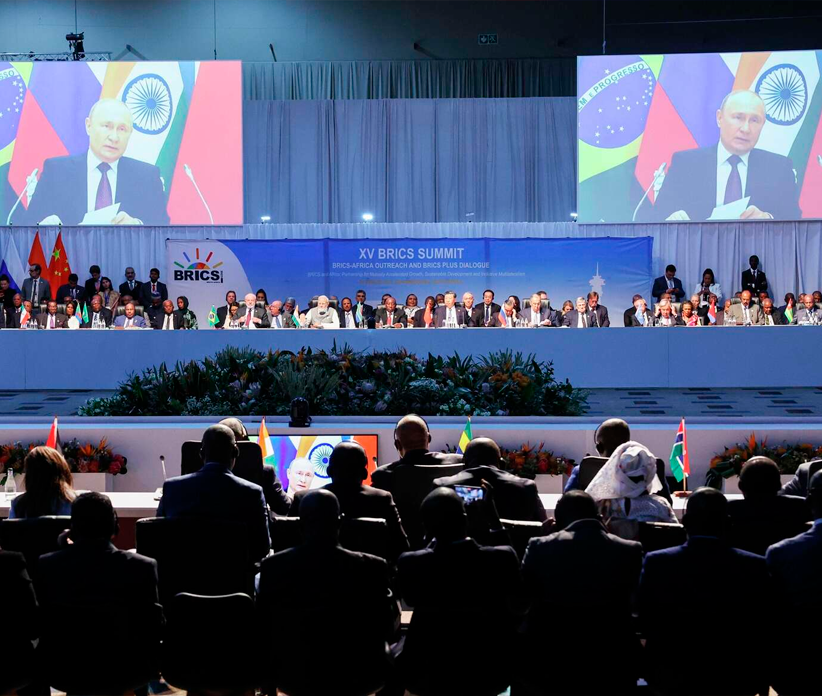

Some in the West argue that “non‑recognition is difficult, because we still have to talk to Putin.” It appears that such views greatly exaggerate the risk.
Western leaders already barely talk to Putin. In an emergency, some neutral figure may be picked to facilitate the communication and Putin still may be contacted as a de‑facto ruler of Russia, without recognition of his legitimacy.
Non‑recognition of Putin’s new term will be a simple, but effective move, which will cost the West nothing, but may have significant impact on the Russian society and elites demonstrating that nothing will improve for Russia in the long term until he goes.
To sum up, Russian presidential elections offer an opportunity to reach out to the Russian society, to increase the anti‑Putin and anti‑war sentiments, and reduce Putin’s maneuver space.
However, the ability to influence the outcome in numbers have shrunk dramatically, which means that the formal issues like personalities of allowed candidates, picking an electoral strategy, and hoping for certain results should be ignored as not to create any fruitless illusions.
Some in the West argue that “non‑recognition is difficult, because we still have to talk to Putin." It appears that such views greatly exaggerate the risk.
Western leaders already barely talk to Putin. In an emergency, some neutral figure may be picked to facilitate the communication and Putin still may be contacted as a de‑facto ruler of Russia, without recognition of his legitimacy.
Non‑recognition of Putin’s new term will be a simple, but effective move, which will cost the West nothing, but may have significant impact on the Russian society and elites demonstrating that nothing will improve for Russia in the long term until he goes.
To sum up, Russian presidential elections offer an opportunity to reach out to the Russian society, to increase the anti‑Putin and anti‑war sentiments, and reduce Putin’s maneuver space.
However, the ability to influence the outcome in numbers have shrunk dramatically, which means that the formal issues like personalities of allowed candidates, picking an electoral strategy, and hoping for certain results should be ignored as not to create any fruitless illusions.
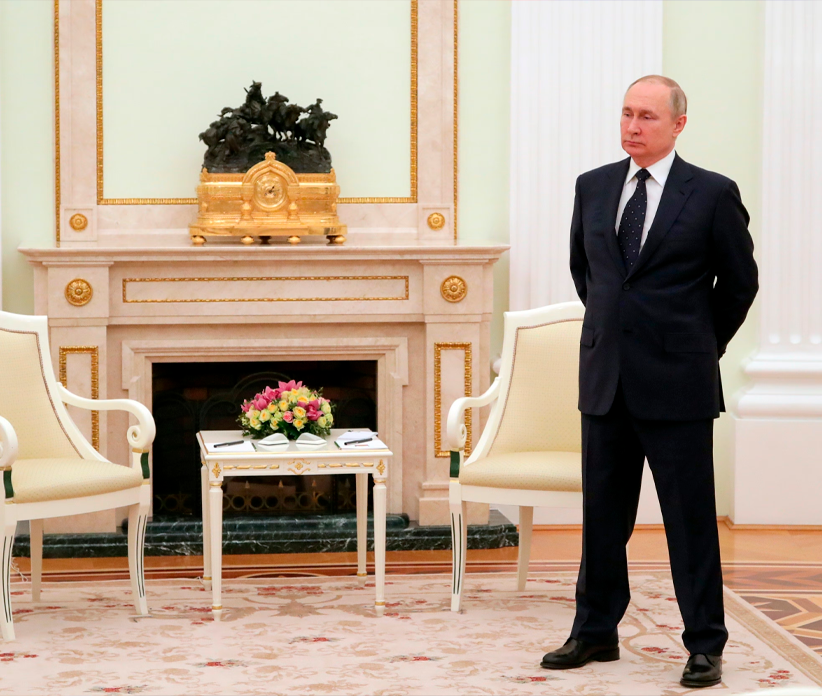

This is not a call for an actual boycott. As we know from experience, it is difficult to mobilize people for active boycotts, and their effectiveness are hard to measure.
Many Russians also really want to use the electoral procedures to show disobedience within the allowed limits and it is best to encourage them to do so.
Despite the certainty that the results of the March vote are in total control of the Kremlin, one should not despair. In 1984–1985, Russia carried out the last totally controlled parliamentary elections, which were characterized by a complete conformism, and 99,5% vote for the ruling Communist party.
Just a year or two later, things started to really move, and the results of the fully controlled sham elections of 1984–1985 were forgotten and meant nothing. Let’s focus on the important things that can be achieved — influencing public opinion, demonstrating the massive anti‑war sentiment — and put aside discussions on the predetermined outcome that we can’t change.
This is not a call for an actual boycott. As we know from experience, it is difficult to mobilize people for active boycotts, and their effectiveness are hard to measure.
Many Russians also really want to use the electoral procedures to show disobedience within the allowed limits and it is best to encourage them to do so.
Despite the certainty that the results of the March vote are in total control of the Kremlin, one should not despair. In 1984–1985, Russia carried out the last totally controlled parliamentary elections, which were characterized by a complete conformism, and 99,5% vote for the ruling Communist party.
Just a year or two later, things started to really move, and the results of the fully controlled sham elections of 1984–1985 were forgotten and meant nothing. Let’s focus on the important things that can be achieved — influencing public opinion, demonstrating the massive anti‑war sentiment — and put aside discussions on the predetermined outcome that we can’t change.
The most crucial message of his campaign to both the country and the world: there are numerous individuals in Russia who oppose this war, who oppose Putin
By Fedor Krasheninnikov
February 15, 2024
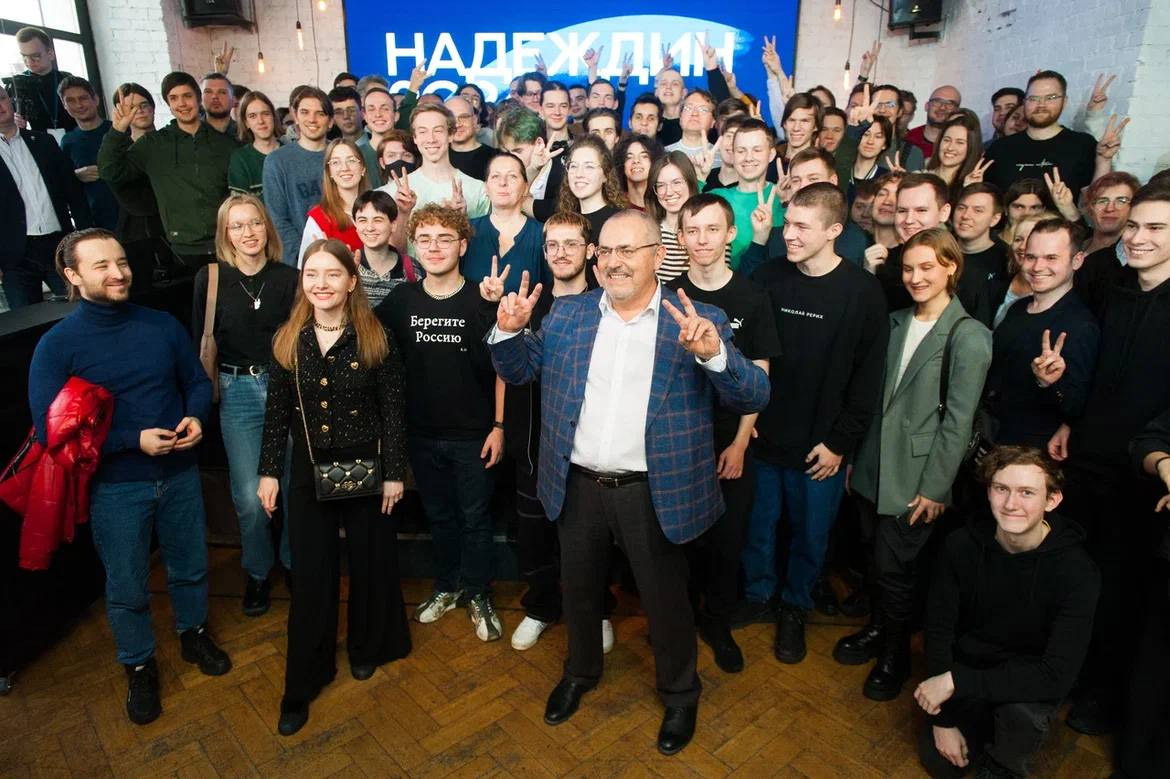 Article
Article Interpreting the September 2024 Russian elections
By Olga Gushchina
October 10, 2024
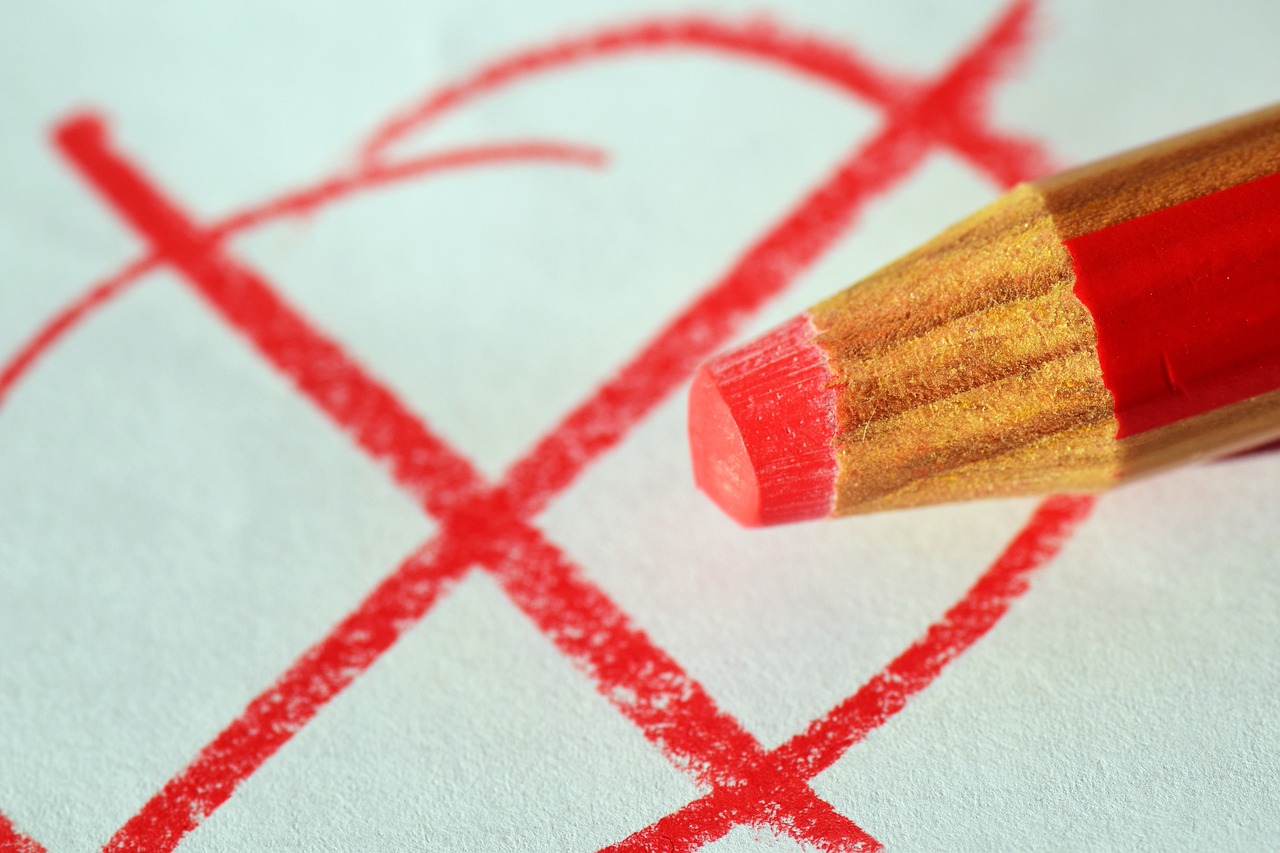 Article
Article By Vladimir Milov
July 03, 2024
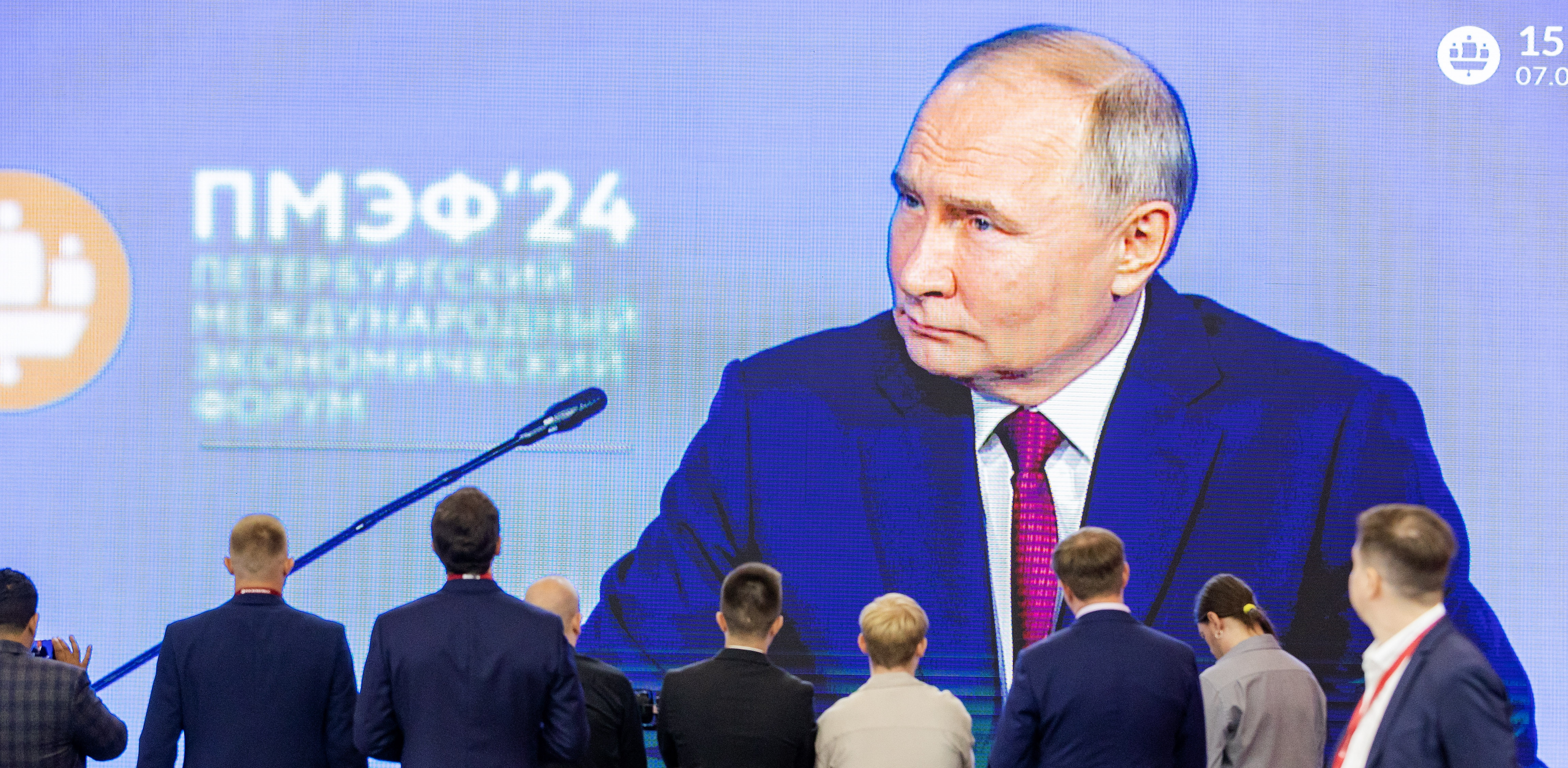
The most crucial message of his campaign to both the country and the world: there are numerous individuals in Russia who oppose this war, who oppose Putin
By Fedor Krasheninnikov
February 15, 2024
 Article
Article Interpreting the September 2024 Russian elections
By Olga Gushchina
October 10, 2024
 Article
Article By Vladimir Milov
July 03, 2024
